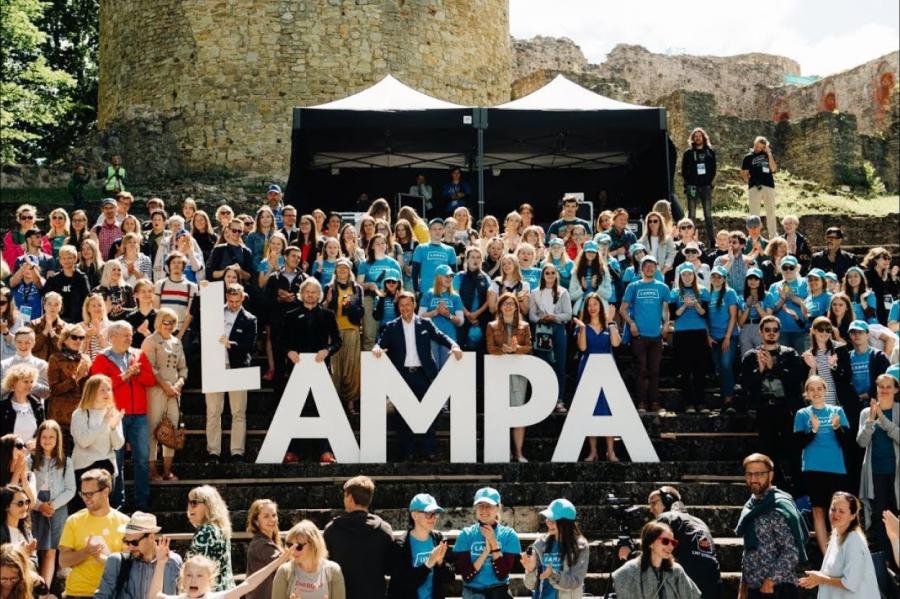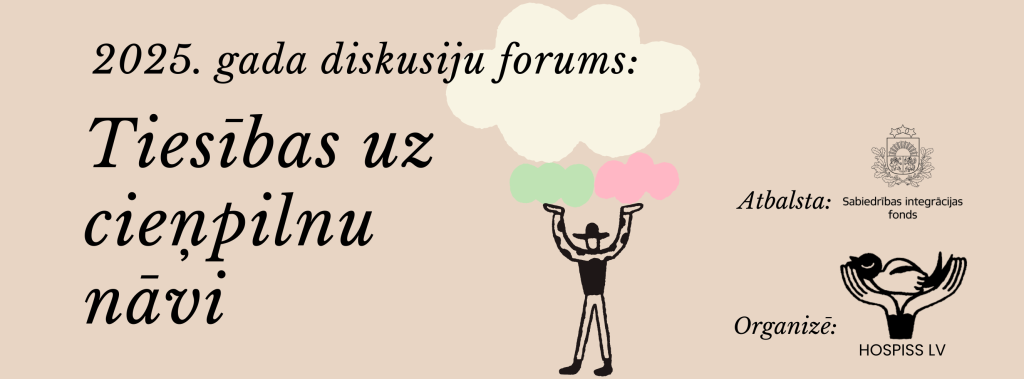These discussions will introduce professions that support dying people, debate whether a good death is possible, explore the reasons for suicide, clarify the difference between stopping futile treatment and euthanasia, and share open experiences of grief. We will discuss how to talk about death with children, whether culture can help in understanding terminal illnesses, allowing us to "face death" through films or performances, and ask volunteers why they choose to help dying people in their free time.
"As 'Hospiss LV's' four years of operation and particularly our participation in last year's LAMPA festival have shown, the topic of death both scares and interests society. Last year, our tent had too few chairs for several LAMPA discussions, and attendees stood outside. This has given us the courage to continue some of the topics started last year and to offer new, equally emotionally charged, experience and thought-provoking discussions. Do not be afraid, come!" invites Ilze Zosule, board member of "Hospiss LV."
In the conversation/discussion "Hold My Hand," we will introduce professions and people who help dying people and their families. What does a caregiver do, what does a chaplain do, and whether a confession to a priest or a psychologist's consultation is needed to make peace with the past and make it easier to "let go." And what is a death or end-of-life doula? This conversation will continue in the discussion "Is a Good Death Possible?" where both relatives who have experienced the death of a loved one at home, in the hospital, and hospice care specialists, whose goal is to ensure a good death, will share their experiences - but is it even possible? Has this experience made us think about how we would like to die ourselves? What does a good death mean to each of us?
We often say that death is not the end... In the "Grief Café," we will openly talk about what happens to relatives after the death of a loved one. Do we know how to grieve? Does society allow it? How to survive grief will be shared by a mother whose son chose to end his life, a mother whose child died of cancer, a woman whose beloved husband died, and a man who has experienced loss.
In collaboration with students from the RSU Psychosomatic Medicine and Psychotherapy program, we are organizing the discussion "The Equation of Suicide" – what are the reasons why so many people voluntarily choose to die? Can we, those around them, notice this and how to prevent it? On Saturday, in the discussion "Stop Torturing Me", we continue the forum "Right to a Dignified Death" with a discussion about futile treatment and the right of the patient to decide to stop treatment. At a time when more and more countries in Europe are discussing the legalization of physician-assisted suicide for the terminally ill, we do not even have the option to express our will, for example, not to be resuscitated.
Although not all adults in Latvia talk about death, "Hospiss LV" believes that a good attitude towards death is formed by childhood experiences, so, with experts from the Children's Palliative Care Association, in the conversation "The Cricket Behind the Stove," we will discuss how to talk about death with children. Should and how to inform a child if a family member is seriously ill or dying, as well as if the child is facing a terminal illness with no hope of recovery. Perhaps one way to do this is through culture, so the subsequent conversation "Cultural Imprints of Death". Can films, theater, and books help to understand death and serious illnesses, and perhaps even change attitudes? Directors who have staged such performances and films based on personal experiences of caring for and witnessing the departure of close people will share their experiences.
In the conclusion of the "Death Café" the conversation "Hello, Who Are You?" – with volunteers who dedicate their free time to bring joy to dying people in hospitals and beyond.
! ! It should be noted that the conversations will take place in a specially designed wooden structure for LAMPA and the "Death Café," created by interior designer and "Hospiss LV" volunteer Kristīna Reinberga with her team. "The round-shaped tent symbolizes the circle of life – from birth to farewell. The circle is a safe environment achieved with an airy, transparent structure and wind-blown fabrics," explains Kristīna, also a participant in the conversation "The Cricket Behind the Stove."
It is known that discussions in a safe environment are more open and valuable, so they will be at the "Hospiss LV" "Death Café"! See you in Cēsis, in Maija Park by the black swans, but if not – thanks to the support of TET, all valuable discussions of the "DEATH CAFÉ" will also be available live.
"HospissLV” participation in the LAMPA conversation festival in 2024 was financially supported by the Society Integration Fund from the Latvian state budget funds.

